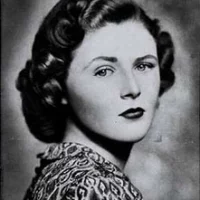An American citizen abroad accused of murder: this is a particular nightmare for consular officers. These cases can become public scandals and political quandaries, and it is the job of American Citizen Services to ensure that Americans accused of major crimes beyond U.S. borders receive appropriate treatment in accordance with international law. If an arrested… Read More "Diplomacy in Cold Blood: Fatal Encounters Around the World"
Basketball: the Fifth Basket of the Helsinki Final Act
The Helsinki Final Act, an agreement signed by 35 nations at the Conference on Security and Cooperation in Europe (CSCE) on August 1, 1975, addressed a spectrum of global problems and had a lasting impact on U.S.-Soviet relations. The Helsinki Final Act dealt with a variety of issues divided into four “baskets.” The first basket… Read More "Basketball: the Fifth Basket of the Helsinki Final Act"
Negotiating the Limited Test Ban Treaty (LTBT)
Due to rising concern about radioactive fallout from increasingly big nuclear tests underwater, in space, in the atmosphere and underground, as well as concern over the burgeoning arms race between NATO and Warsaw Pact countries, the US, UK, and USSR decided to negotiate a test-ban treaty. These concerns became more pronounced after the United States… Read More "Negotiating the Limited Test Ban Treaty (LTBT)"
Chipping Away at Czechoslovak Communism: The Helsinki Final Act and Charter 77
The Solidarity Movement. Perestroika and Glasnost. The fall of the Berlin Wall. All of these movements, policies, or events had a tremendous influence on the dissolution of communism in Eastern Europe and the end of the Cold War. While not attributed the same attention and certainly less well known, many diplomats operating behind the Iron… Read More "Chipping Away at Czechoslovak Communism: The Helsinki Final Act and Charter 77"
Teaching the Foreign Service to Speak Foreign Languages
The Foreign Service Institute (FSI) is the primary training institution to prepare American diplomats to advance U.S. foreign affairs interests, teaching, among other things, the languages of the countries where Foreign Service Officers will serve. At the National Foreign Affairs Training Center in Arlington, Virginia, FSI’s School of Language Studies provides 25 hours of classroom… Read More "Teaching the Foreign Service to Speak Foreign Languages"
Establishing an Escape Network in Post-War Hungary
Throughout most of World War II, Hungary operated in conjunction with the Axis Powers and actively contributed to the Nazi war effort under the leadership of Miklós Horthy. While invading Soviet troops had pushed out the occupying German forces by April 1945, the newly established Russian presence quickly posed a precarious threat to Hungarian stability… Read More "Establishing an Escape Network in Post-War Hungary"
The Siberian Seven: Escaping Religious Persecution in the U.S.S.R.
From its inception, the Soviet Union became the first state in the world to actively attempt to eliminate religion from society. Religion was viewed by Soviet leadership as counter-intuitive to scientific reason and as a threat to the consolidation and exertion of state power. Correspondingly, under Soviet religious policy, tens of thousands of houses of worship… Read More "The Siberian Seven: Escaping Religious Persecution in the U.S.S.R."
Anatomy of an Overthrow: How an African Leader was Toppled
A council of combined security forces known as the Derg staged a coup d’état on September 12, 1974 against Ethiopian Emperor Haile Selassie I, arresting and imprisoning the monarch who had ruled for decades. The committee renamed itself the Provisional Military Administrative Council, took control of the government, soon abolished the monarchy and established Marxism-Leninism… Read More "Anatomy of an Overthrow: How an African Leader was Toppled"
“The Cold War Was Truly Over” — The 1986 Reykjavik Summit
After the 1985 Geneva Summit, where President Ronald Reagan and leader of the Soviet Union, Mikhail Gorbachev, met for the first time, the Reykjavik Summit, held on October 11-12, 1986, presented an opportunity to try to reach an agreement between the two sides on arms control. While Gorbachev wanted to ban all ballistic missiles and limit the talks… Read More "“The Cold War Was Truly Over” — The 1986 Reykjavik Summit"
An effective diplomat, dazzling socialite, and the mother of Winston Churchill’s grandson, Pamela Digby Churchill Hayward Harriman won the respect of fellow diplomats and adroitly handled complex problems related to the war in the Balkans, export subsidies, and intellectual property rights during her tenure as U.S. Ambassador to France from 1993-1997. Richard Holbrooke said of…

